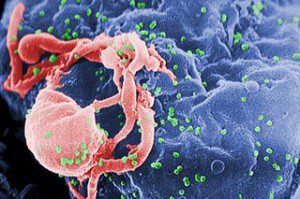A two-year-old child born with HIV infection and treated with antiretroviral drugs beginning in the first days of life no longer has detectable levels of the virus, according to finding presented Monday at the Conference on Retroviruses and Opportunistic Infections (CROI) in Atlanta. The child has not taken HIV medication for 10 months.
This is the first well-documented case of an HIV-infected child who appears to have been functionally cured of HIV infection — that is, without detectable levels of virus and no signs of disease in the absence of antiretroviral therapy.
Further research is needed to understand whether the experience of the child can be replicated in clinical trials involving other HIV-exposed children, according to the investigators.
In July 2010, the child was born prematurely in Mississippi at 35 weeks, to an HIV-infected mother who had received neither antiretroviral medication nor prenatal care.
Because of the high risk of exposure to HIV, the infant was started at 30 hours of age on liquid antiretroviral treatment consisting of a combination of three anti-HIV drugs: zidovudine, lamivudine, and nevirapine.
The baby was discharged from the hospital at 1 week of age and placed on liquid antiretroviral therapy consisting of combination zidovudine, lamivudine and co-formulated lopinavir-ritonavir. This drug combination is a standard regimen for treating HIV-infected infants in the United States.
The baby remained on the prescribed antiretroviral treatment regimen until 18 months of age (January 2012), when treatment was discontinued for reasons that are unclear. However, when the child was again seen by medical professionals in the fall of 2012, blood samples revealed undetectable HIV levels (less than 20 copies/mL) and no HIV-specific antibodies. Using ultrasensitive viral RNA and DNA tests, the researchers found extremely low viral levels.
Today, the child continues to thrive without antiretroviral therapy and has no identifiable levels of HIV in the body using standard assays. The child is under the medical care of Hannah Gay, M.D., a pediatric HIV specialist at the University of Mississippi Medical Center in Jackson.
“This case suggests that providing antiretroviral therapy within the very first few days of life to infants infected with HIV through their mothers via pregnancy or delivery may prevent HIV from establishing a reservoir, or hiding place, in their bodies and, therefore, achieve a cure for those children,” said Dr. Persaud.




This is why “RESEARCH” is so very important! Why anyone would NOT mind paying a few pennies more in taxes is a MYSTERY to me!